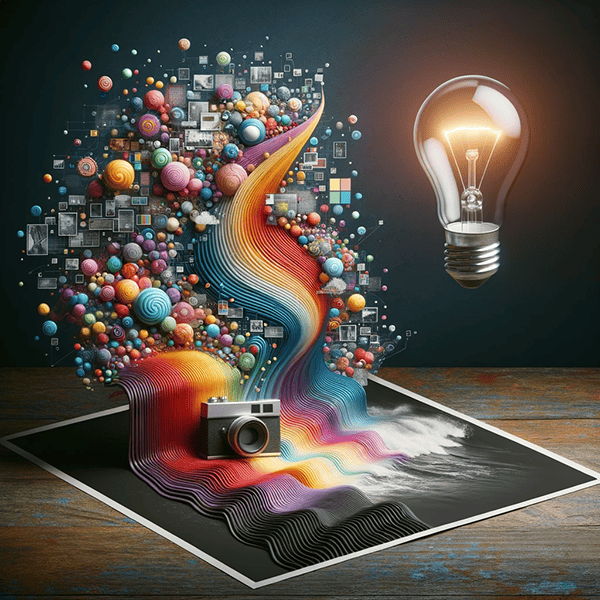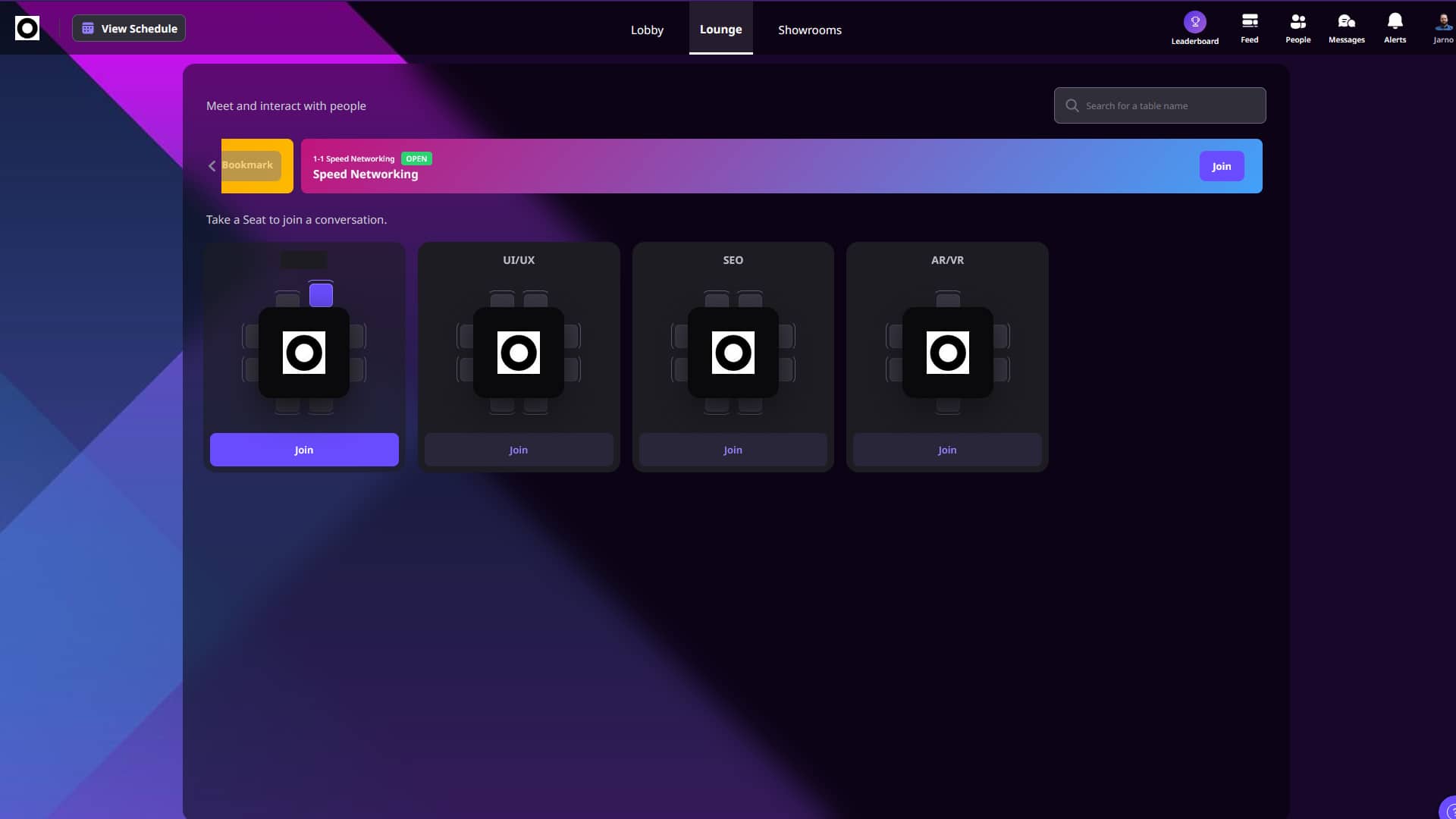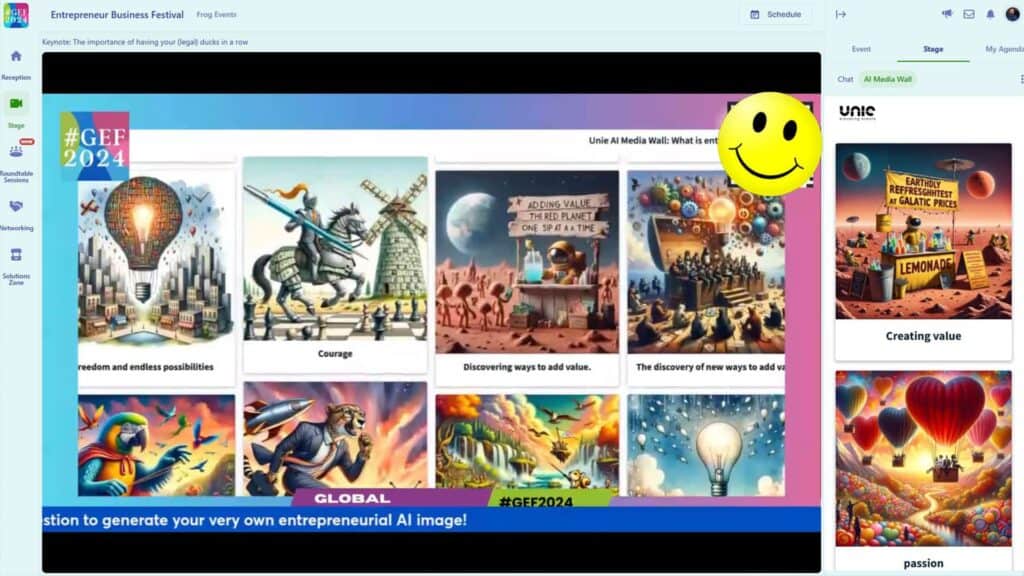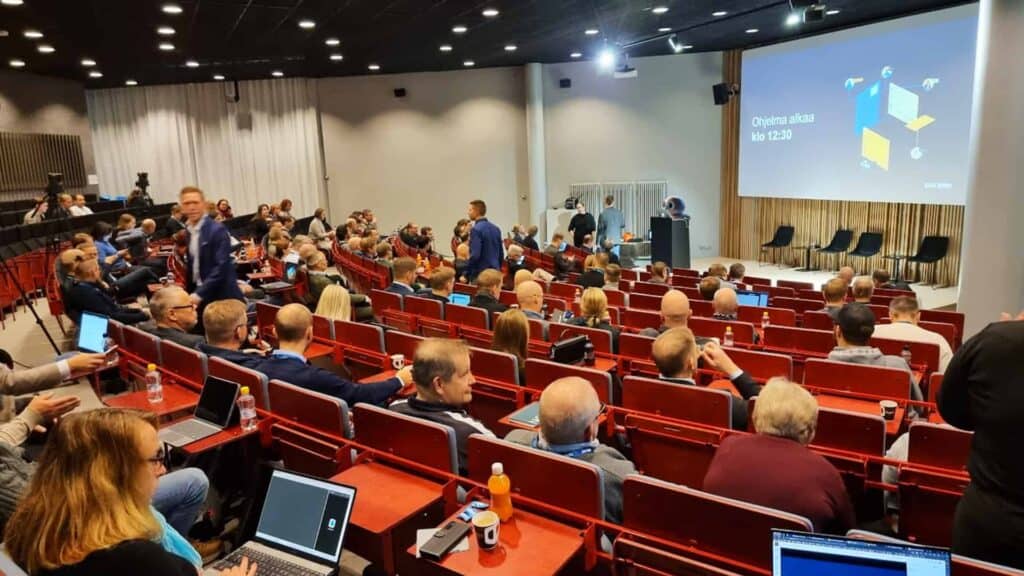In the dynamic world of event planning, staying ahead of the curve is crucial. Enter Artificial Intelligence (AI) – a game-changer that’s transforming the industry. From chatbots to predictive analytics, AI is making event planning more efficient, personalized, and creative.
But how can you leverage this powerful technology for your events? In this comprehensive guide, we explore the many ways AI can enhance your event planning, the ethical considerations to keep in mind, and how to embrace AI while maintaining the human touch that makes events memorable. Whether you’re an event coordinator or a marketer, this guide is your roadmap to navigating the exciting landscape of AI in event planning.

1. The Dawn of AI in Event Planning
Artificial Intelligence (AI) is no longer a concept confined to science fiction. It’s here, and it’s transforming industries, including event planning. AI enables powerful tools that can analyze vast amounts of data, automate repetitive tasks, and even mimic human intelligence. It’s revolutionizing the way we plan and manage events, making the process more efficient, personalized, and creative.
AI can automate many aspects of event planning, from marketing to attendee management. It can analyze attendee data to provide personalized experiences, predict future trends based on past data, and even help find the perfect venue. AI-powered chatbots can answer attendee queries in real-time, freeing up valuable time for event planners.
But it’s not just about efficiency. AI can also enhance creativity in event planning. For example, AI algorithms can generate unique event themes or decor ideas based on current trends. It can also suggest personalized event agendas for attendees based on their preferences and past behavior.
However, like any technology, AI also comes with challenges. These include ethical considerations like data privacy and the potential impact on jobs. But with careful management and a clear understanding of these issues, event planners can harness the power of AI to create memorable and successful events.
2. Chatbots: Your New Event Planning Assistant
Imagine having an assistant that works 24/7, answering attendee queries in real-time, assisting with ticket purchases, and even providing personalized recommendations. This is what chatbots can do. Powered by AI, chatbots are becoming an essential tool in event planning.
Chatbots can significantly enhance the attendee experience. They can provide instant responses to common questions, reducing the workload on your customer service team. They can also assist with ticket purchases, making the process smoother for attendees.
But chatbots can do more than just answer questions and sell tickets. They can also provide personalized recommendations based on attendee preferences. For example, a chatbot could recommend sessions to attend or people to network with based on an attendee’s interests and past behavior.
Implementing a chatbot can seem daunting, but there are many tools available that make the process easier. Plus, the benefits of improved efficiency and enhanced attendee experience make it a worthwhile investment.

3. Personalization with AI
In today’s world, personalization is key. Attendees expect experiences tailored to their interests and needs. AI can help you meet these expectations.
AI can analyze attendee data to provide personalized experiences. This can range from tailored event agendas to personalized networking opportunities. For example, AI could suggest sessions to attend or people to network with based on an attendee’s interests and past behavior.
Personalization can significantly enhance attendee satisfaction and engagement. It can make attendees feel valued and understood, increasing their likelihood of attending future events. Plus, personalized experiences are more memorable, helping your eventstand out in a crowded market.
However, personalization requires careful management of attendee data. You need to ensure that you’re collecting and using data in a way that respects privacy and complies with data protection regulations.
4. AI-Powered Event Marketing
Marketing is a critical aspect of event planning. It’s how you attract attendees and create buzz around your event. AI can make your marketing efforts more effective and efficient.
AI can analyze vast amounts of data to provide insights into your target audience. This can help you create marketing campaigns that resonate with your audience and drive attendance. AI can also automate repetitive tasks, such as email marketing, saving you time and effort.
For example, AI can analyze past attendee data to identify patterns and trends. This can help you understand what types of events or sessions are most popular, allowing you to tailor your marketing efforts accordingly. AI can also predict future trends, helping you stay ahead of the curve.
AI can also personalize your marketing messages based on individual preferences. This can significantly increase engagement and conversion rates. For example, you could use AI to send personalized email invitations to past attendees, suggesting sessions or speakers they might be interested in based on their past behavior.

6. AI in Venue Selection
Finding the perfect venue is one of the most challenging aspects of event planning. It needs to have the right capacity, facilities, location, and ambiance. AI can help you find the perfect venue based on your specific requirements.
AI can analyze factors such as capacity, location, hybrid capabilities and facilities to provide you with the best options. It can also take into account other factors, such as attendee preferences or past event data. This can save you time and effort in venue scouting.
However, while AI can provide valuable insights, it’s still important to visit potential venues in person. This will allow you to assess the venue’s ambiance and suitability for your event.
5. Predictive Analytics for Successful Events
Predictive analytics is another area where AI can add value to event planning. By analyzing past event data, AI can predict future trends, helping you make data-driven decisions.
For example, AI could analyze data from past events to predict attendee numbers. This could help you plan your event type and resources more effectively. Should you go full virtual or invest in hybrid? AI could also identify popular event features or sessions, helping you focus your efforts on what works.
Predictive analytics can also help you anticipate and manage potential challenges. For example, AI could predict potential bottlenecks in registration or traffic flow, helping you take preventative action.
However, predictive analytics is only as good as the data it’s based on. You need to ensure that you’re collecting high-quality, relevant data to get accurate predictions.

7. AI for Event Security
Security is a critical aspect of event planning. AI can enhance event security through features like facial recognition and threat detection.
For example, AI-powered facial recognition can help manage access to your event, ensuring only authorized attendees can enter. AI can also detect potential threats, such as unattended bags, helping you ensure a safe and secure environment for your attendees.
AI could also help you to recognize unwanted behavior in chats and discussion rooms, making it easier to manage virtual environments.
However, while AI can enhance security, it’s important to balance this with respect for privacy. You need to ensure that you’re using AI in a way that respects attendee privacy and complies with data protection regulations.
8. The Ethical Considerations of Using AI
While AI offers numerous benefits, it’s important to consider the ethical implications. These include issues like data privacy, bias in AI algorithms, and the impact on jobs.
Data privacy is a key concern. You need to ensure that you’re collecting and using attendee data in a way that respects privacy and complies with data protection regulations. You also need to be transparent with attendees about how their data is being used.
Bias in AI algorithms is another concern. AI algorithms are only as good as the data they’re based on. If the data is biased, the AI’s decisions will also be biased. You need to ensure that you’re using unbiased data and regularly testing your AI for bias.
The impact on jobs is also a concern. While AI can automate many tasks, it’s important to consider the impact on jobs. You need to ensure that you’re using AI in a way that supports jobs, rather than replacing them.

9. The Future of AI in Event Planning
AI is continually evolving, with new applications emerging all the time. Staying up-to-date with these developments can help you leverage AI to its full potential in your event planning.
For example, we’re seeing the emergence of AI-powered virtual reality (VR) in event planning. This could allow attendees to experience your event virtually, expanding your reach and accessibility.
We’re also seeing the development of more advanced AI algorithms, capable of more complex tasks. This could further enhance the efficiency and creativity of event planning. Even ChatGPT, which is known to most planners and marketers, is evolving constantly.
However, as AI evolves, so do the challenges. These include more complex ethical considerations and the need for more advanced skills. As an event planner, you need to stay ahead of these developments to leverage the benefits of AI and manage the challenges.
10. Embracing AI in Your Event Planning
While AI can significantly enhance your event planning, it’s important to remember that it’s a tool to assist you, not replace you. The human touch is still crucial in creating memorable events.
AI can help you automate repetitive tasks, analyze data, and even generate creative ideas. But it’s still up to you to make the strategic decisions, build relationships with attendees, and create the unique experiences that make your event stand out.
To summarize, you might want to start leveraging AI in:
- Automating Tasks: AI can handle repetitive tasks such as attendee management and email marketing, freeing up time for event planners.
- Enhancing Creativity: AI algorithms can generate unique event themes or decor ideas based on current trends.
- Personalizing Experiences: AI can analyze attendee data to provide personalized experiences, such as suggesting sessions to attend or people to network with.
- Improving Marketing Efforts: AI can analyze data to provide insights into your target audience, helping to create more effective marketing campaigns.
- Aiding in Venue Selection: AI can analyze various factors to suggest the best venue options for your event.
- Predictive Analytics: AI can analyze past event data to predict future trends, helping with data-driven decision-making.
- Enhancing Security: AI can help manage access to your event and detect potential threats, ensuring a safe environment for attendees.
- Ethical Considerations: It’s important to consider data privacy, bias in AI algorithms, and the impact on jobs when using AI in event planning.
Embracing AI in your event planning doesn’t mean replacing the human touch. It means using AI to enhance your capabilities, freeing up your time to focus on what humans do best: creating meaningful, memorable experiences.
Conclusion
In conclusion, AI is a powerful tool that can transform your event planning. But like any tool, it needs to be used wisely. With a clear understanding of the benefits, challenges, and ethical considerations, you can leverage AI to create more efficient, creative, and personalized events.
What are your thoughts? Let me know: Jarno Wuorisalo | LinkedIn









